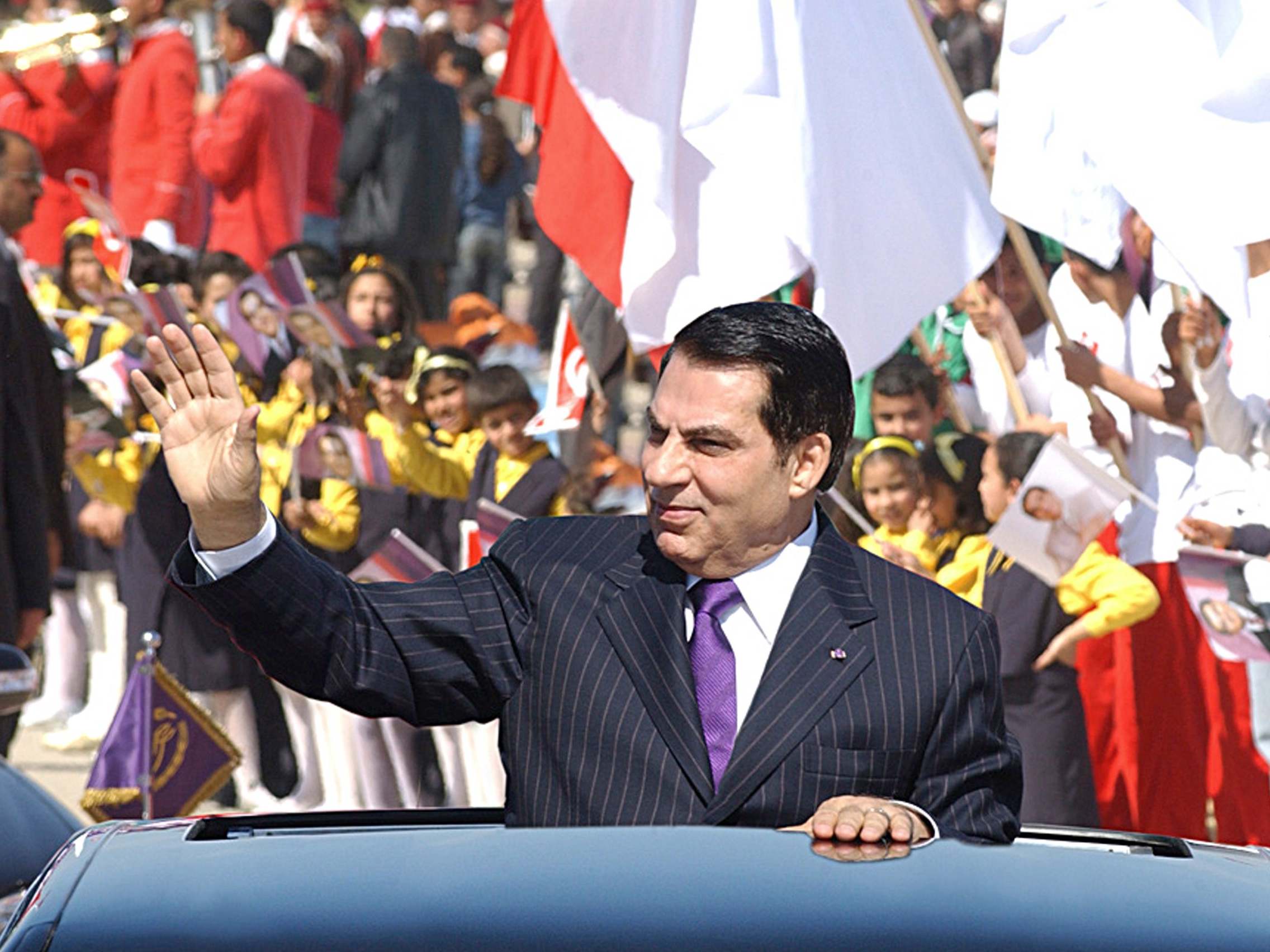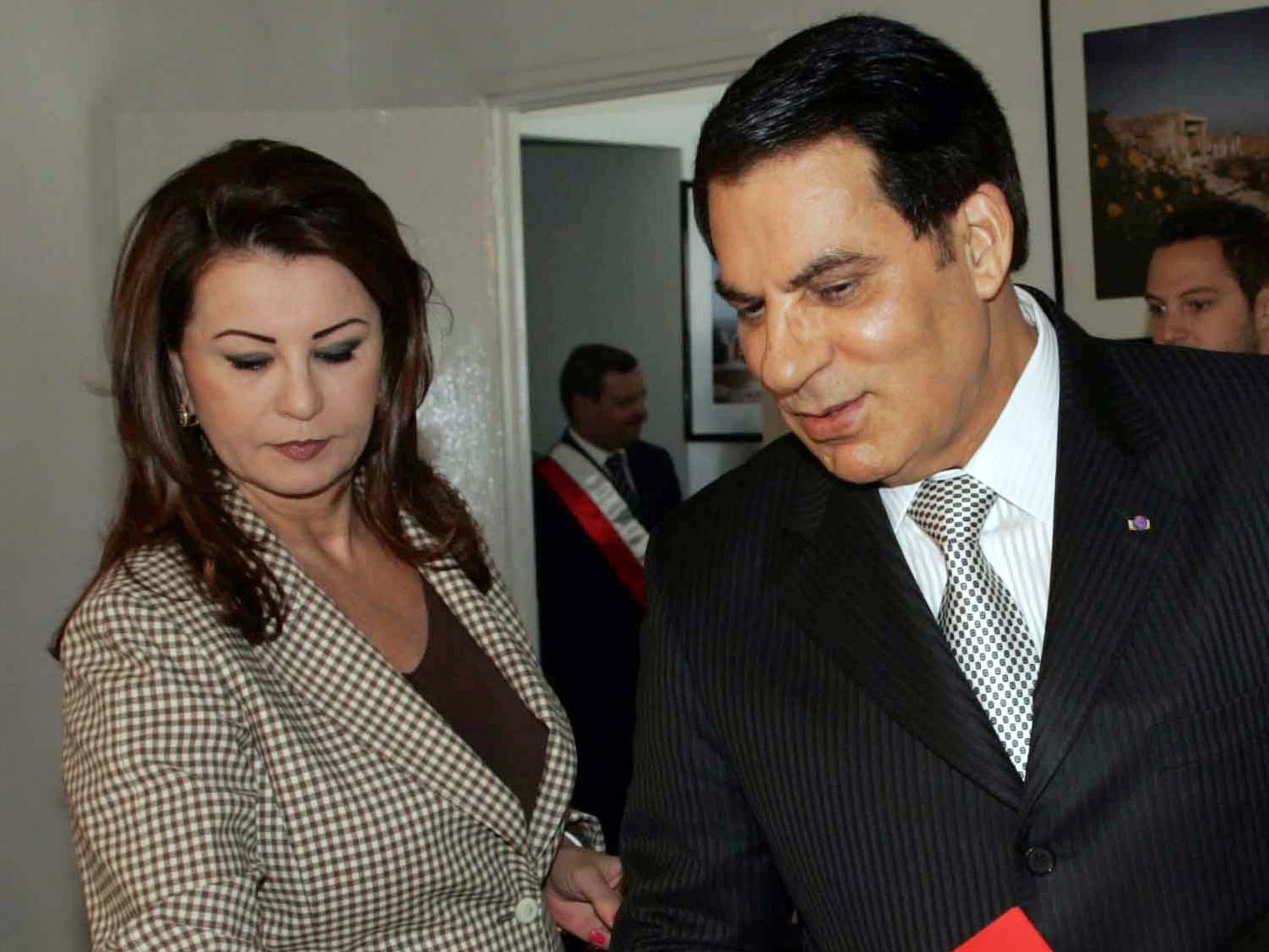Zine el Abidine Ben Ali: First ruler ousted by Arab Spring dies in Saudi exile
Former Tunisia president dies aged 83 after suffering from prostate cancer, lawyer says

Your support helps us to tell the story
From reproductive rights to climate change to Big Tech, The Independent is on the ground when the story is developing. Whether it's investigating the financials of Elon Musk's pro-Trump PAC or producing our latest documentary, 'The A Word', which shines a light on the American women fighting for reproductive rights, we know how important it is to parse out the facts from the messaging.
At such a critical moment in US history, we need reporters on the ground. Your donation allows us to keep sending journalists to speak to both sides of the story.
The Independent is trusted by Americans across the entire political spectrum. And unlike many other quality news outlets, we choose not to lock Americans out of our reporting and analysis with paywalls. We believe quality journalism should be available to everyone, paid for by those who can afford it.
Your support makes all the difference.Former Tunisian president Zine El Abidine Ben Ali, an autocrat who led his country for 23 years before being toppled by protests that unleashed a wave of revolt across the Arab world, has died aged 83, his lawyer said.
Ben Ali, who lived in exile in Saudi Arabia, died in Jeddah and his body is to be transferred to Mecca, awaiting the family’s decision on a burial, according to lawyer Mounir Ben Salha.
Ben Ali was being treated for prostate cancer and had been admitted to hospital last week.
His ousting as Tunisia’s president in 2011 unleashed what became known as the Arab Spring, a movement that saw many autocratic leaders swept from power.
Ben Ali was widely detested and convicted repeatedly of corruption in Tunisia after he went into self-imposed exile.
But some loyal supporters called for his return as economic and security troubles plagued the country’s new democracy.
His death comes four days after Tunisia held a first round of presidential elections, the second democratic elections for head of state since Ben Ali’s ouster.
As president, Ben Ali’s picture was plastered for decades on billboards and buildings across the country, his face remaining strangely ageless despite the passage of time, his hair jet-black.
It seemed that only death would end his grip on power.
But as revolt swept Tunisia in late 2010 and early 2011, fuelled by anger over corruption, repression and unemployment, demonstrators set fire to the president’s photograph, a once-unthinkable act.
His image eventually peeled off buildings and billboards nationwide like old wallpaper.
Ben Ali promoted his country of 11 million as a beach haven for European tourists and a beacon of stability in volatile North Africa.
It seemed as though he had offered his people a trade-off: there was a lack of civil rights and little or no freedom of speech, but a better quality of life than in nearby countries such as Algeria and Morocco.
Tunisia’s revolution changed all that, spawning a plethora of political movements and the only democracy to emerge from the Arab Spring movement across the region.
The United States and other Western powers had an ambivalent relationship with Ben Ali.
WikiLeaks cables from the US Embassy in Tunis described widespread allegations of corruption among the president’s family, described Tunisia as a “police state” and said Ben Ali had lost touch with his people.
But Ben Ali tried to curry favour with the West through an ongoing crackdown on extremists that human rights groups said was far too brutal and too broad, targeting as potential terrorists anyone with a strict interpretation of Islam.
Born 3 September, 1936 near Sousse, a city of white- and sand-coloured houses on the Mediterranean, Ben Ali embarked on a career as a professional army officer.
He was responsible for Tunisia’s internal security throughout a 1985 confrontation with neighbouring Libya and a crackdown on Islamic fundamentalists.

He was briefly prime minister in 1987 before setting his sights on the presidency.
In a bloodless coup, Ben Ali seized power from then-president-for-life Habib Bourguiba, the founder of modern-day Tunisia who set the Muslim country on a pro-Western course after independence from France in 1956.
Ben Ali removed Bourguiba from office for “incompetence”, saying he had become too old, senile and sick to rule.
Ben Ali promised that his leadership would “open the horizons to a truly democratic and evolved political life”.
But, after a brief period of reforms, Tunisia’s political evolution stopped.
Most opposition parties were illegal. Opponents were jailed or fled into exile.
Amnesty International said authorities infiltrated human rights groups and harassed dissenters.
Reporters Without Borders branded Ben Ali a “press predator” who controlled the media.
Ben Ali consistently won elections by large margins.
In 2009 he was re-elected to a fifth five-year term with 89 per cent of the vote.
He had warned political opponents they would face legal retaliation if they questioned the vote’s legitimacy.
Under Ben Ali’s watch, Tunisia was relatively untouched by the kind of Islamic extremist violence that wracked neighbouring Algeria, except for a 2002 attack on a synagogue on the Tunisian resort island of Djerba that killed 21 people, mostly German tourists.
Investigators linked the attack to al-Qaida.
After the 2011 revolution, Islamic fundamentalism surged in some quarters and security services struggled against extremists linked to Isis.
Ben Ali is survived by his second wife, Leila Trabelsi, and their three children, who lived with him in exile, as well as by three children from his first marriage.
Associated Press
Join our commenting forum
Join thought-provoking conversations, follow other Independent readers and see their replies
Comments